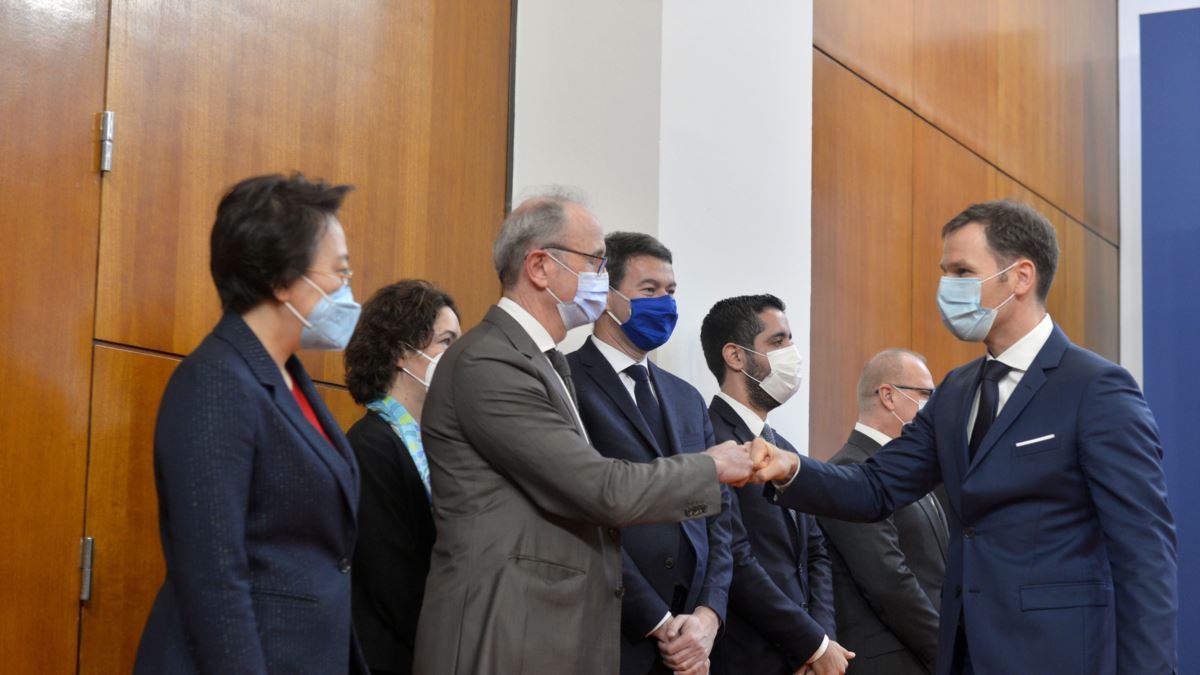
BELGRADE – Two French companies along with a Chinese firm have signed a memorandum of understanding with the Serbian government to build a metro in the capital, Belgrade.
“Today is a great day for all of us because we are one step closer to realizing a decades-long dream,” Serbian Finance Minister Sinisa Mali said during the signing ceremony on January 22 with representatives of Alstom and Egis of France and China’s Power Construction Corporation.
The project is expected to cost 4.4 billion euros ($5.35 billion) and consists of two metro lines covering a total of nearly 42 kilometers.
Construction is due to start at the end of this year, pending signature of the contracts with the relevant Serbian authorities, with completion expected by 2028.
France’s Egis would develop feasibility studies, preliminary design, and environmental impact assessments, while Alstom would be responsible for the metro equipment and infrastructure, including trains, digital train control systems, platform screen doors, and the power supply solutions.
Construction work would be performed by the Chinese company.
The project is to be partly funded by the French and Chinese governments, while the Serbian government is to finance the remainder from its budget.
In 2020 the French and Serbian government signed an agreement according to which Paris agreed to allocate 454 million euros ($552 million) to Belgrade’s first metro line.
The content of a 2019 agreement between Belgrade and Beijing regarding the project has not been made public.
Alstom said in a statement that the new metro system “will provide the foundations for truly sustainable mobility in the densely populated capital city of Serbia, rapidly contributing to the reduction of road congestion.”
However, Serbian opposition, analysts, and environmental groups have warned that the deal lacked transparency and that construction would affect an area that supplies Belgrade with drinking water.
The main French and Chinese contractors for the Belgrade metro have been selected without a public tender, but Mali ensured that tenders will be organized to select the subcontractors.
“We wonder why we have the Law on Public Procurement and the Law on Public-Private Partnership at all, if they are not applied to the most expensive projects,” Nemanja Nenadic of the nongovernmental organization Transparency Serbia told RFE/RL.
Serbia is a candidate for membership in the European Union – its main trade partner. Belgrade also maintains strong economic ties with China, which has invested in infrastructure and energy in the Balkan country.
With reporting by Reuters
This post was originally published on Radio Free.